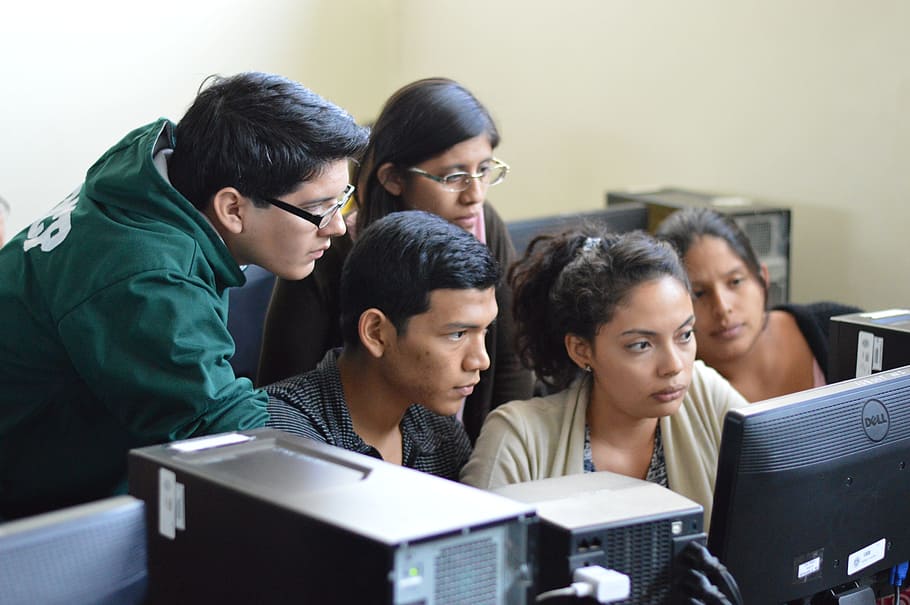The semester has just begun, and more than 4 million students are returning to higher education classrooms in Mexico. Estimates are that at least 1 million of them are new entrants to Mexico’s various public and private institutions.
Thus, more than one million students are experiencing for the first time the long-awaited university life – the parties, freedom, new friends, and, of course, all the new experiences like in the movies… or not?
The beginning of university life usually marks one of the most significant milestones for those with access to higher education. Other relevant events also accompany it, such as coming of age and independent living. That is why entering the university not only signifies an academic transition but the students also experience the social, personal, and economic changes that complicate their adaptation and present different obstacles to overcome.
The challenges of university life
A CollegeData survey of more than 300 first-year college students examined their difficulties when entering college. In this study, the academic environment emerged as a primary factor for which the students surveyed felt unprepared.
We must accept that studying for a high school exam differs from a university one. Paying attention in classes and studying the night before does not produce the same results, which often translates into failing exams and bad grades. Gabriela Thorne explains that, when arriving at Harvard, many students prefer not to ask for help because they all consider themselves excellent students and do not believe they need it. Still, the reality is very different: everyone must try harder than they did before. She also says that students must lose their fears and accept that not everything they do gets graded a perfect ten.
For many people, college is the first moment of accepting that they are no longer the most outstanding student in the class. Peer competition can be frustrating and profoundly affect university students’ self-esteem and academic performance.
On the other hand, González Ceballos explains in his work “The Transition of the University Student” that each level of formal education “poses challenges in the learning process, the skills or competencies to develop, and the interests or specific goals, among others.” Therefore, entering higher education requires adaptive skills to cope with the challenges of entering a new phase and space.
In addition to these academic factors, economic and social ones present hurdles. Regarding social factors, we can say that meeting new people is difficult for introverts; however, the pandemic completely changed how people relate, mainly those who experienced it during adolescence and developed anxiety and depression.
Making friends in college can be difficult, keeping them even harder, especially considering that class breaks are no longer part of this stage, and it is unlikely to have the exact class schedules and free hours to be with other classmates.
On the other hand, for many new students, the only way to access quality higher education involves leaving their places of origin. About 16% of students who start their university life are considered foreigners. That is, in addition to facing significant academic changes, they have to deal with aspects that they may not have had to worry about before: their food, keeping their rooms clean, washing their clothes, and, primarily, organizing themselves financially to ensure sure they do not run out of money before the end of the month. Also, these students must deal with loneliness, finding themselves away from their families in new and unfamiliar places.
Being a college student isn’t that easy, is it?
Advice on How to Adapt to Your First Semester in College
Although the outlook looks daunting and murky, college can be one of the best student stages, especially considering that, for most, it is the last time they can enjoy almost three months of vacation.
Here are tips for having the right tools to develop the skills to get ahead and achieve during this phase.
- Find your study strategy: as mentioned above, studying one night before an exam does not ensure the best results. Finding the best study strategy for you can save you many headaches. Throughout your educational background, you may have noticed that there are resources that help you more than others. Find the right ones for your type of learning and focus your work in that style, both in the classroom and outside of it.
- Take care of your physical and mental well-being: eat well, sleep well, and consult an expert if necessary for beneficial health. Many universities grant food scholarships and psychological accompaniment, so approach your institution and ask how they can help you. Depression, anxiety, and imposter syndrome are serious things; do not let them dominate your life.
- Learn to manage your time: leaving study sessions until the days around the exam will not improve your results or health. Rest is paramount, but you can only do it if you learn to set times and prioritize activities. Most likely, you cannot go to the gym, go out with your friends, eat healthily, do homework, and study on the same day, but for everything, there is time if you know how to manage it and learn how to recognize your needs.
- Create an expense budget: if you are a foreigner and have a predetermined budget, money is one of your main problems initially. You must allocate a part to recurring expenses and basic needs (rent, services, food) and spend only some of that money on leisure activities.
- Learn to say no: Like the previous points, social pressure can be powerful; skipping a study session before the exam or spending the last 200 pesos of the fortnight is not advisable. Setting limits is a helpful skill for a lifetime.
- Create community: one of the things I miss most about the city where I attended college is my friends; however, it took me more than two years to find a group where I felt loved, accepted, and respected before I could finally call it home. College can feel hostile, but try not to forget human relationships; make friends, seek them, and be sought. The university is where you may meet friends who accompany you all your life.
In short, these suggestions are not everything but remember that some, such as good organization, knowing how to set limits, and creating human connections, are essential for preparing for the academic and personal fields. University is the perfect microcosm to train for insertion into the world of work.
As the semester begins, do not forget that life is unlike the movies. All changes are difficult, but everything becomes easier by organizing yourself properly and creating a support network. You can do it.
To the teachers
As agents of change, we must understand the complexity of this process. Accompany and help students recognize that making mistakes in college is not wrong. Every year more than 300 thousand students drop out of higher education. Although the factors are diverse and do not fall wholly on the teacher or the university, we must create a safe place for students and teach and inspire them through knowledge. The world can be aggressive and challenging, but teachers can cushion it and provide tools to face it. It is up to us to make the classroom a safe place.
Translation by Daniel Wetta
This article from Observatory of the Institute for the Future of Education may be shared under the terms of the license CC BY-NC-SA 4.0 
)
)


)